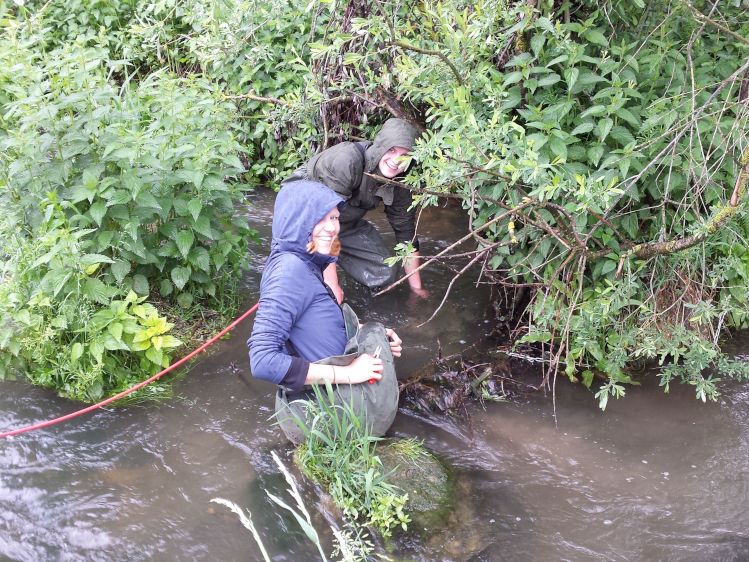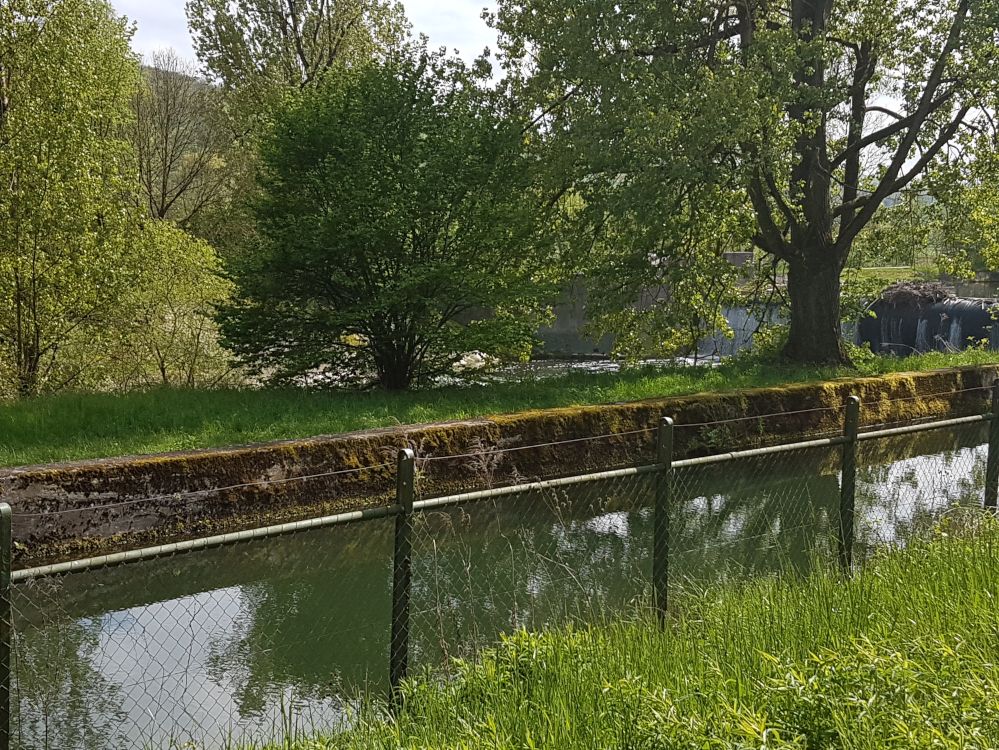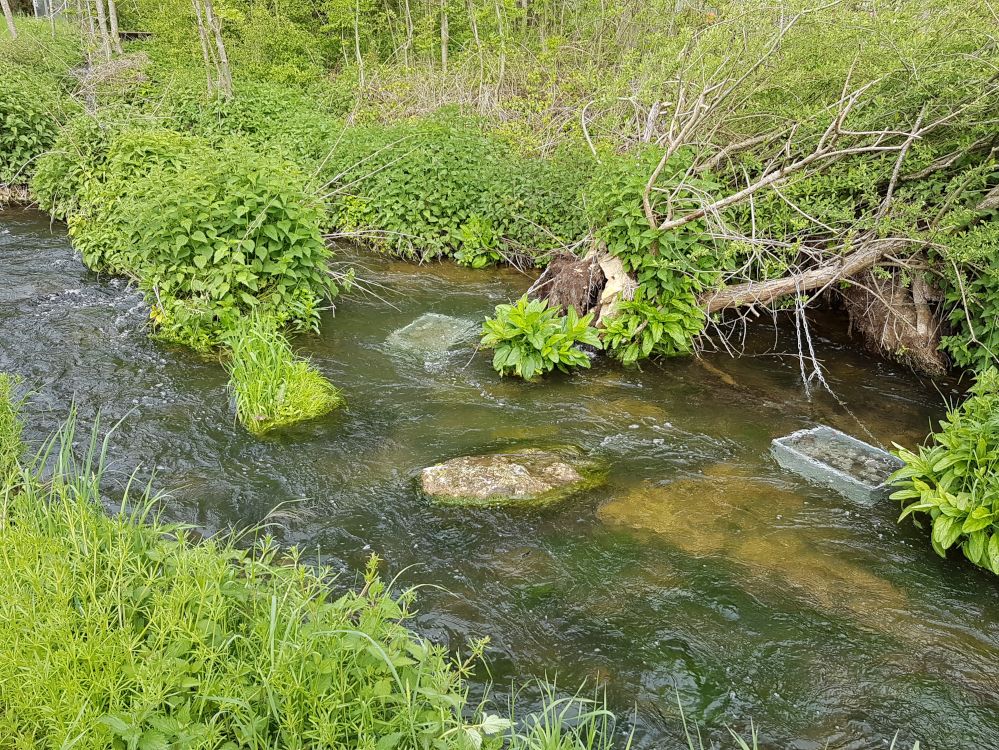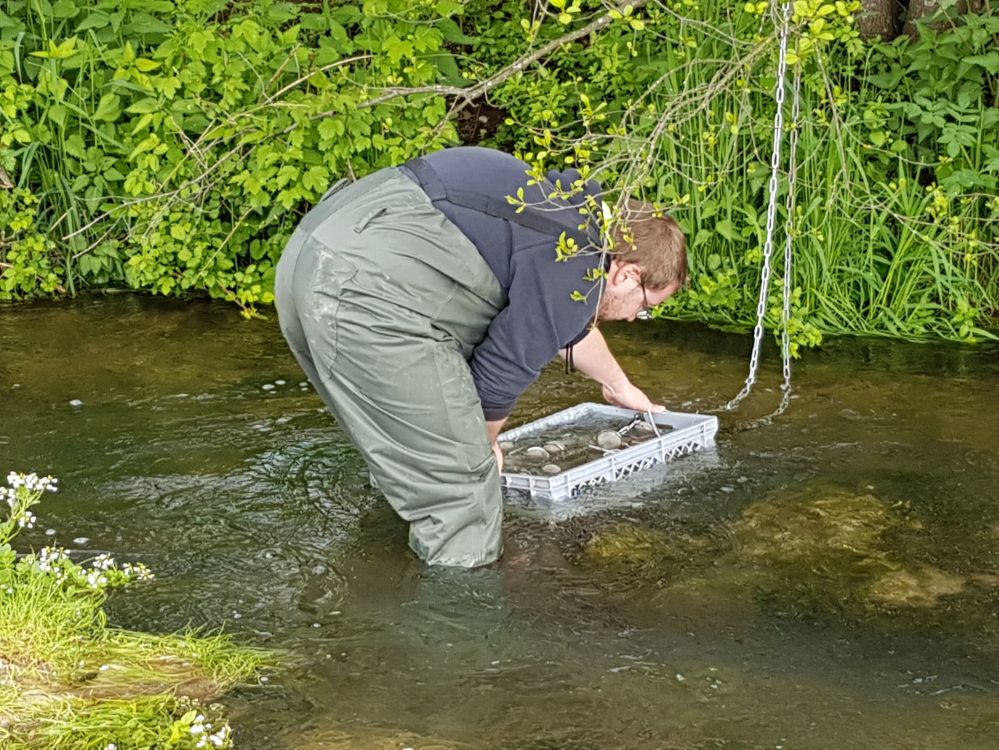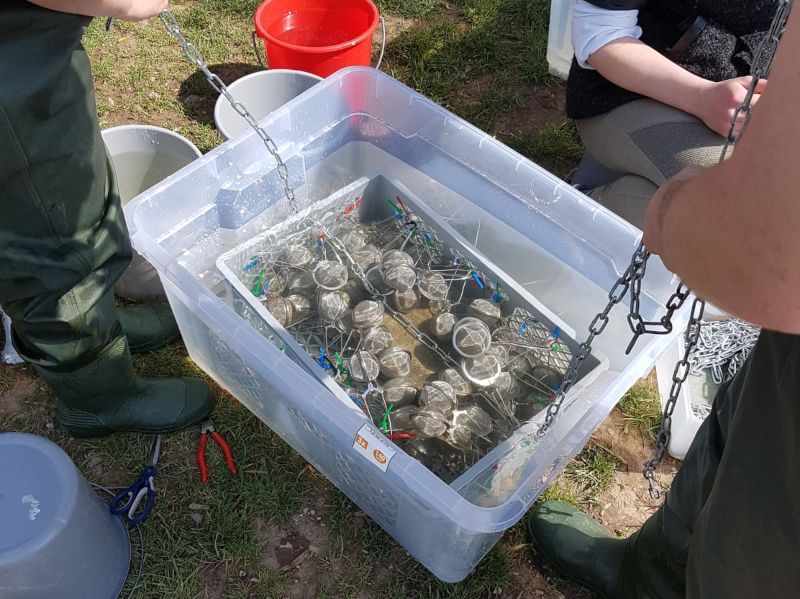Wastewater Treatment Plant Tübingen
In the joint project "Wastewater Treatment Plant Tübingen", which is funded by the Ministry of the Environment of Baden-Württemberg and the City of Tübingen, the success of the expansion of the wastewater treatment plant Tübingen with ozonation as a 4th treatment stage for the ecosystem of the Neckar is investigated.
Phase 1 of the studies (2018-2019) looked at the condition of the Neckar River before the expansion of the WWTP, and Phase 2 (2021-2022) will look at the effects of the expansion.
As part of the project, surface water samples of the Neckar River as well as influent and effluent of the wastewater treatment plant will be collected for extensive investigations and analyzed for trace substances, resistant germs, and impact potentials using in vivo and in vitro bioassays. The effect potential tests include various effect endpoints: genotoxicity (umuC assay), estrogenicity (YES assay), neurotoxicity (acetylcholine esterase inhibition assay), dioxin-like toxicity (CAFLUX assay), analgesic effects (effect-based NSAID assay), and developmental toxicity (fish embryotoxicity test FET). In order to represent possible direct effects in aquatic organisms in addition to effect potentials, amphipods will be actively exposed in the Neckar River in parallel to the water sampling. Based on the simultaneous survey of the macrozoobenthos community, the water quality will be assessed at the ecosystem level.
Cooperation partners:
| University of Tübingen, Institute for Evolution and Ecology, Animal Physiological Ecology (Rita Triebskorn with Tobias Haasis, Katharina Peschke, Juliane Riedel, Jonas Stenger, Martin Vogt, Sabrina Wilhelm): Limnochemical studies, fish embryotoxicity test (FET), active monitoring with amphipods and subsequent biomarker analysis. |
| KIT, Institute for Functional Interfaces (IFG), Department of Microbiology/Molecular Biology (Thomas Schwartz): Quantification of facultative pathogenic and antibiotic-resistant bacteria in the effluent of the wastewater treatment plant in Tübingen. |
| SIZ, Steinbeis-Innovationszentrum Zellkulturtechnik, Mannheim (Manfred Frey): Analgesic effects, effect-based NSAID in vitro assay. |
| RECETOX, Masaryk University Brno, (Luděk Bláha): Dioxin-like effect potentials. |
| LWV, Zweckverband Landeswasserversorgung Wasserwerk Langenau (Wolfgang Schulz, Stefan Weiß): Chemical analysis, genotoxicity, estrogenicity, neurotoxicity. |
| GÖL, Gewässerökologisches Labor Starzach (Karl Wurm, Gabriele Hofmann): determination of macrozoobenthos and diatoms. |

